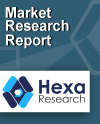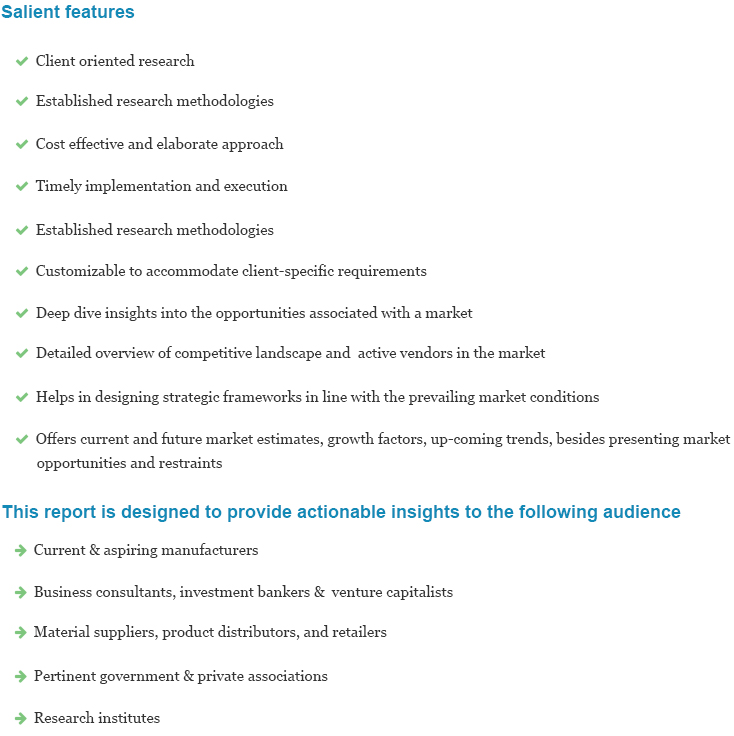
Lung Cancer Market Size, Share, Growth, Trends, Application Analysis, Regional Outlook, Competitive Strategies and Forecasts, 2019 To 2025
- Published: February, 2019
- Format: Electronic (PDF)
- Number of pages: 70
- Industry: Healthcare
The global lung cancer market is anticipated to witness significant growth due to increasing number of people suffering from lung cancer. Growing elderly population, changing lifestyle of people, and increasing smoking of tobacco are driving the market. Cigarette smoke comprises several carcinogens, such as asbestos, radon gas, and radioactive materials. Thus, passive smokers are also at high risk of developing the disease. Moreover, genetic factors, exposure to triggers and carcinogens, and air pollution can cause lung cancer.
Furthermore, targeted and innovative methods to deliver drugs to the lung, along with growing adoption of personalized treatments, are expected to support market growth in the coming years. Targeted therapies act by blocking the spread of cancer cells and have better efficiency than traditional therapies, such as platinum-based chemotherapy, radiation therapy, and surgical resection. This has encouraged pharmaceuticals to develop targeted therapies in combination with traditional ones.
Although, new drugs have been introduced in the market, the expiry of patents on the current drugs can have a negative impact on market growth. Since, cost of developing the drugs is increasing, it has compelled manufacturers to reduce their R&D investments. In addition, chemotherapies and radiation therapies have side effects. Therefore, market participants are taking efforts to develop safe and advanced therapies.
Small cell and non-small cell are the two types of lung cancer. Non-small cell lung cancer (NSCLC) is the most common type that causes mortality and morbidity worldwide. Approval of late-stage pipeline therapeutics, such as onartuzumab and necitumumab, is expected to stimulate the segment’s growth. Furthermore, surgery has been the most prescribed form of treatment for patients with stage I (NSCLC). Though, high chances of morbidity and mortality associated with surgeries in the geriatric population remain a matter of concern. Availability of several alternative methods, such as radiofrequency ablation (RFA) and stereotactic radiation therapy (SRT), is expected to bode well for the market.
North America in one of the leading regional markets due to increasing incidence of cancer and growth of geriatric population. Additionally, developing smoking habits, which has formed a large base of carcinoma lung population, are anticipated to boost regional market growth.
Asia Pacific is likely to witness notable growth in the coming years due to improving healthcare infrastructure and rising awareness regarding improved healthcare facilities. Untapped opportunities for cancer therapies in emerging countries, such as China and India, are expected to boost regional market growth. Growing smoking population in the region is also expected to support market growth in the coming years.
Some of the prominent companies operating in the lung cancer market are AstraZeneca Plc, Sanofi-Aventis, Hoffman-La Roche., Boehringer Ingelheim GmbH, and Merck. Participants are focusing on novel product development and expansion of product portfolio. Moreover, they are taking up strategies, such as mergers and acquisition, and agreements, to sustain in the competitive environment.
For instance, Pfizer Inc. announced that the U.S. Food and Drug Administration (FDA) approved its new medicine called LORBRENA. It is a third-generation anaplastic lymphoma kinase (ALK) tyrosine kinase inhibitor (TKI) for patients with ALK-positive metastatic non-small cell lung cancer.
Similarly, Accuray Incorporated introduced its new Accuray Precision Treatment Planning System (TPS) with the CyberKnife VOLO Optimizer. It is intended to enhance operational efficiency and create high-quality treatment plans.
In November 2018, Champions Oncology, Inc. in collaboration with the Addario Lung Cancer Medical Institute (ALCMI) and EGFR Resisters, announced the launch of a new study related to epidermal growth factor receptor (EGFR) positive lung cancer. The aim is to develop a new bank of patient derived xenograft (PDX) models that can be used as a resource for clinical research and development of new therapies for the patients living with EGFR lung cancer.
In October 2018, Lung Cancer Alliance (LCA) announced the launch of a new campaign, ‘What About Your Lungs?’ The program is to spread awareness regarding lung cancer screening and benefits of early detection methods. It also aims at encouraging individuals to speak with doctor to access their own risk for the disease and discover if screening is right for them.

Choose License Type
- World's largest premium report database
- Transparent pre & post sale customer engagement model
- Unparalleled flexibility in terms of rendering services
- Safe & secure web experience
- 24*5 Research support service
